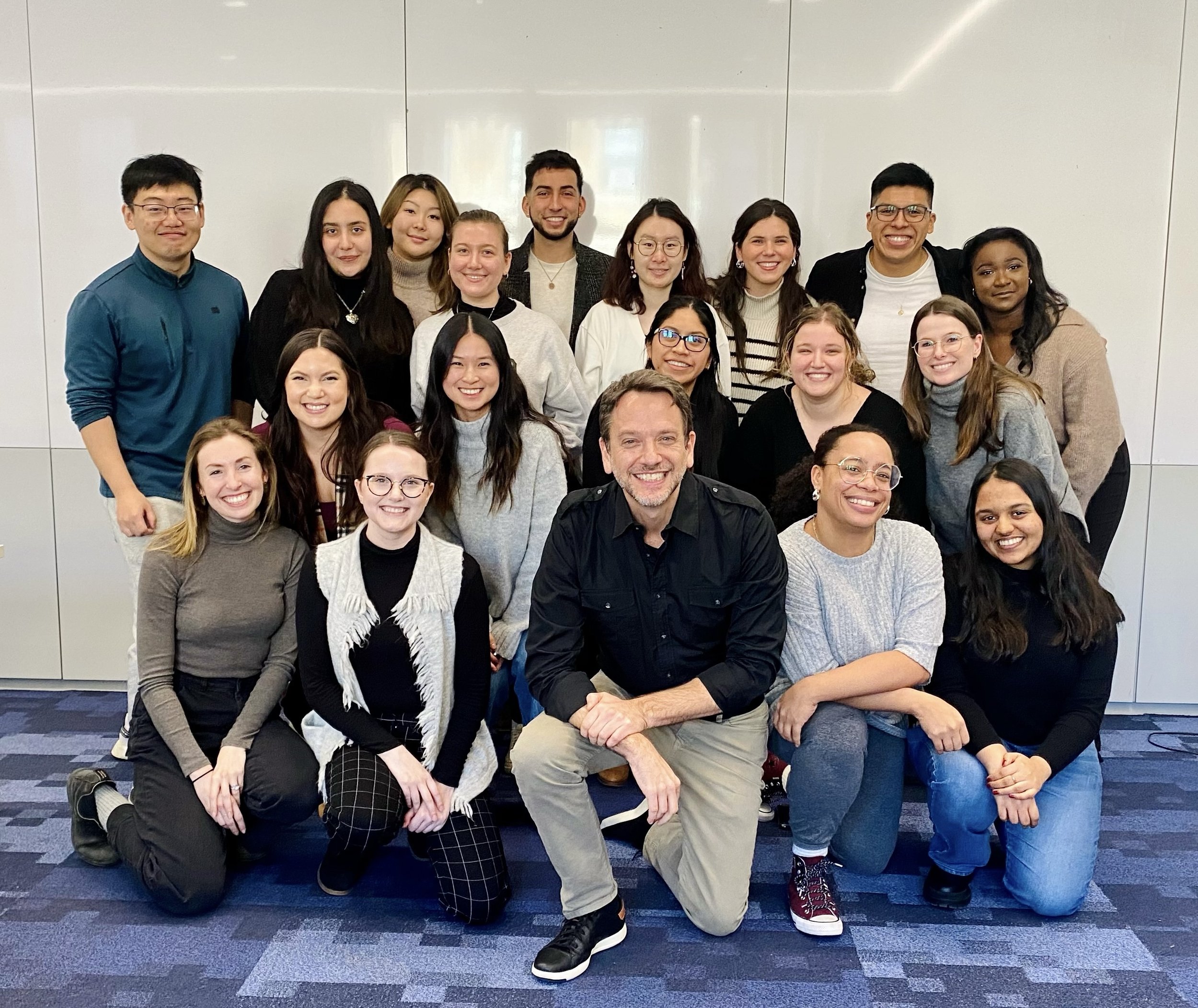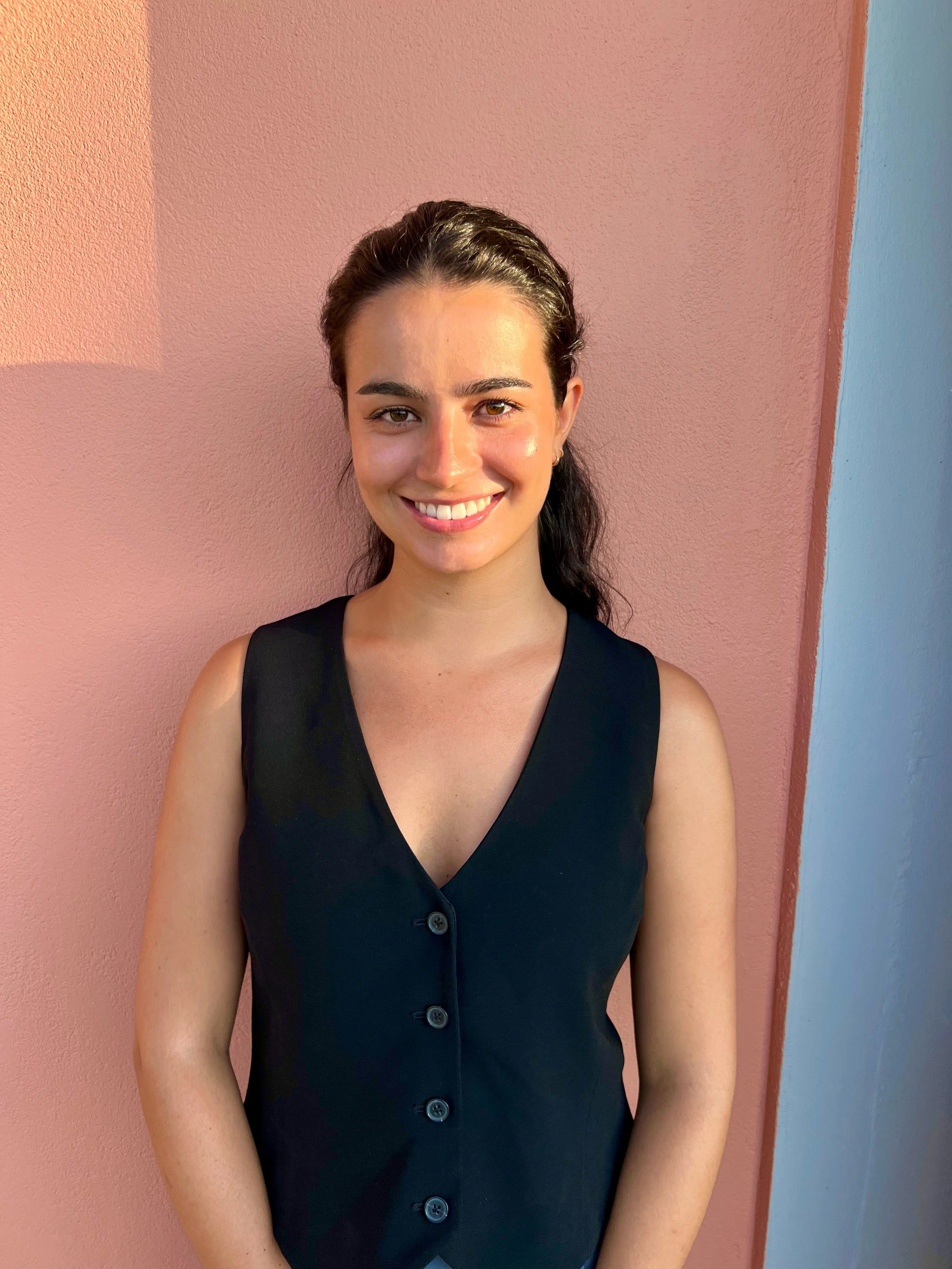Abigail Szkutak
5th YeaR Ph.D. Student
Abigail (Abby) Szkutak is a fifth-year Ph.D. student in Clinical Psychology at Teachers College, Columbia University. She received her B.A. in Psychology from the College of the Holy Cross and worked as a research coordinator at Massachusetts General Hospital/Harvard Medical School’s Center for OCD & Related Disorders before beginning her graduate training. Abby’s research centers on understanding how and for whom psychological treatments work, particularly for adults with emotion dysregulation. She is especially interested in integrating physiological and neural measures (e.g., heart rate variability, event-related potentials), therapist and patient process data, and advanced longitudinal modeling approaches to examine mechanisms of change in psychotherapy and individual predictors of treatment response. Her dissertation research, funded in part by a Training Fellowship from the Society for Psychophysiological Research, investigates targeted mechanisms in the transdiagnostic treatment of perseverative negative thinking using neural and cardiac indices.
moises hernandez
4th YeaR Ph.D. Student
Moises Hernandez is a fourth-year Ph.D. student in the Clinical Psychology program at Teachers College, Columbia University. After graduating from St. John's University with a B.A. in Psychology, Moises joined the New York City Department of Health & Mental Hygiene, where he led the adaptation of HIV prevention programs for Latinx New Yorkers. While in the M.A. in Psychology in Education program at TC, Moises worked as a research assistant at Hunter College's Emotion Regulation Lab, where he helped investigate the biobehavioral mechanisms underlying distress and fear-based anxiety disorders. He is interested in identifying and targeting biobehavioral mechanisms of anxiety disorders, with a particular interest in targeting these mechanisms among marginalized populations like the Latinx and LGBTQ+ communities.
Esther Anene
3rd YeaR Ph.D. Student
Esther Anene is a third-year Ph.D. student in the Clinical Psychology program at Teachers College, Columbia University. After graduating from the University of Southern California with a B.A. in Psychology and a M.S. in Neuroimaging and Informatics, Esther spent two years working at the Precision Psychiatry and Translational Neuroscience Lab at Stanford University, where she coordinated studies investigating the neural circuitry underlying symptoms of depression and anxiety. Esther later worked as a research assistant on the Adolescent Brain Cognitive Development Study at Yale University. She is interested in investigating the behavioral and biological mechanisms underlying emotion dysregulation in mood and anxiety disorders, as well as the elements of therapeutic change, to inform more targeted treatments.
ELLIE BRISKIN
1st YeaR Ph.D. Student
Ellie Briskin is a first-year Ph.D. student in the Clinical Psychology program at Teachers College, Columbia University. After graduating from Dartmouth College with a B.A. in Psychology, Ellie spent two years working at the Center for Health Outcomes and Interdisciplinary Research at Massachusetts General Hospital. In this role, Ellie coordinated mindfulness-based interventions for individuals coping with health challenges and comorbid psychological distress. Ellie later worked as a research coordinator in the Solomonov Lab at Weill Cornell Medicine, where she supported research aimed at developing scalable, neuroscience-informed psychotherapies for depression. Ellie is interested in investigating the transdiagnostic factors that maintain emotional distress, and hopes her research can inform more effective treatments for anxiety and mood disorders across diverse populations.
Research Assistants
2nd Year MA StudentsSUTAPA GOSWAMI is a second-year Master's student in the Clinical Psychology program at Teachers College, Columbia University. After graduating from Delhi University with a B.A. (Hons) in Psychology, she worked in a research lab at IIT Delhi investigating cognitive and emotional development in children following a brief meditation intervention, using EEG/ERP methods. She is deeply passionate about leveraging neuroimaging techniques (EEG, fMRI) within experimental paradigms to elucidate transdiagnostic mechanisms underlying the development of internalizing disorders such as depression and anxiety. Her work is grounded in the belief that we must move beyond the limitations of categorical diagnostic systems and toward empirically-driven, dimensional frameworks— that better capture the complexity, comorbidity, and heterogeneity of psychopathology.
MADISON HALCOMB
SHRIYA KALE
AARON (YIFAN) LIU is an M.A. student in the Clinical Psychology program at Teachers College, Columbia University. He holds a B.S. in Biomedical Neuroscience from the Southern University of Science and Technology and previously completed doctoral coursework in neuroscience at Fudan University. Aaron’s research leverages ecological momentary assessment (EMA), computational algorithms, and psychophysiology to examine contextualized emotion dysregulation as a transdiagnostic factor of psychopathology and to identify biobehavioral targets for personalized intervention.
QUEENIE LIU is a second-year master's student at Teachers College, Columbia University. She graduated from the University of California, Irvine, with a B.S. in Psychology and a minor in Biological Sciences. Her research interests focus on understanding the unique sociocultural and behavioral factors that influence mental health conditions, particularly within Asian populations. Ultimately, Queenie aims to contribute to the development of more culturally congruent mental health interventions and to promote sustained help-seeking behaviors.
REBECCA STEELE graduated from the University of San Francisco with a B.A. in Psychology and a minor in Neuroscience. She worked as a research assistant for the Love and Communication Lab at USF and as a practicum intern at the Memory and Aging Center at University of California, San Francisco. Currently, she works as a technician for Transcranial Magnetic Stimulation (TMS) treatment at a psychiatrist’s office and as an office associate for the psychology and education training clinic at Teachers College. Alongside volunteering as a research assistant with the READ Lab, she also volunteers for Columbia Health’s Sexual Violence Response center as a peer advocate. Her research interests include finding intervention strategies for ADHD that do not rely on psycho-stimulants and building more therapeutic techniques for those that struggle with attention deficits.
YOLIE WHIITAKER is a Clinical Psychology Master’s student at Teachers College, Columbia University. She holds a Bachelor of Science in Psychology and Behavioral Neuroscience from Northeastern University. Before graduate school, Yolie spent four years as a Clinical Research Coordinator; first at Massachusetts General Hospital, where she led an intervention study for adolescents at risk for psychosis, and later at Mount Sinai’s Depression & Anxiety Center, where she coordinated an R01-funded neuroimaging study on the Locus Coeruleus in anxiety and PTSD. Yolie is passionate about bridging clinical and translational research to improve evidence-based care for high-risk and underserved populations. Her interests focus on using multimodal approaches to examine neurobiological and psychosocial risk factors underlying internalizing disorders, particularly emotion dysregulation and maladaptive cognitive processes. She plans to pursue a PhD in Clinical Psychology to advance the development of accessible, culturally responsive, and neuroscience-informed interventions.
XINWAN ZHANG









